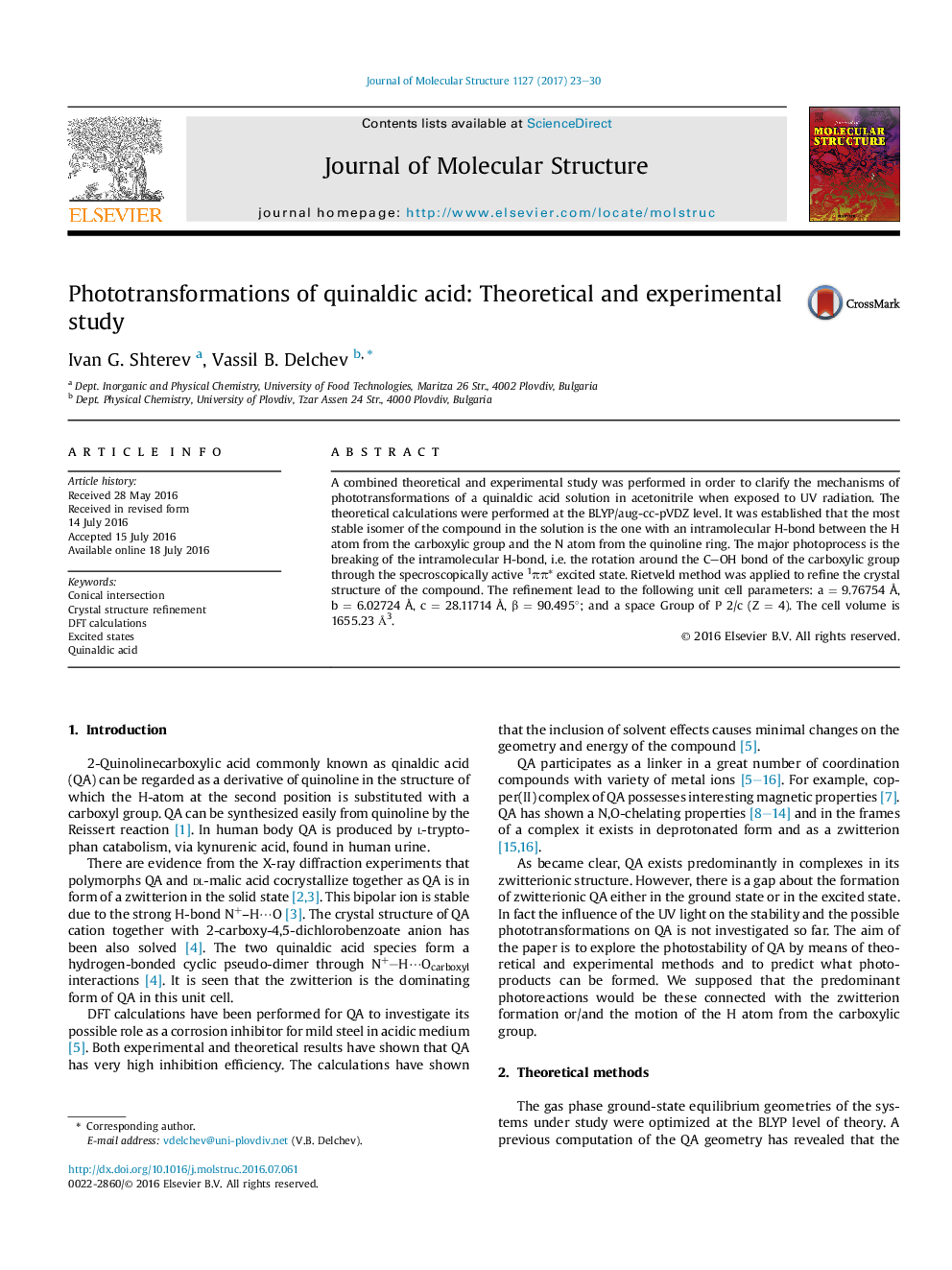| Article ID | Journal | Published Year | Pages | File Type |
|---|---|---|---|---|
| 1407505 | Journal of Molecular Structure | 2017 | 8 Pages |
Abstract
A combined theoretical and experimental study was performed in order to clarify the mechanisms of phototransformations of a quinaldic acid solution in acetonitrile when exposed to UV radiation. The theoretical calculations were performed at the BLYP/aug-cc-pVDZ level. It was established that the most stable isomer of the compound in the solution is the one with an intramolecular H-bond between the H atom from the carboxylic group and the N atom from the quinoline ring. The major photoprocess is the breaking of the intramolecular H-bond, i.e. the rotation around the COH bond of the carboxylic group through the specroscopically active 1ÏÏ* excited state. Rietveld method was applied to refine the crystal structure of the compound. The refinement lead to the following unit cell parameters: a = 9.76754 Ã
, b = 6.02724 Ã
, c = 28.11714 Ã
, β = 90.495°; and a space Group of P 2/c (Z = 4). The cell volume is 1655.23 Ã
3.
Keywords
Related Topics
Physical Sciences and Engineering
Chemistry
Organic Chemistry
Authors
Ivan G. Shterev, Vassil B. Delchev,
